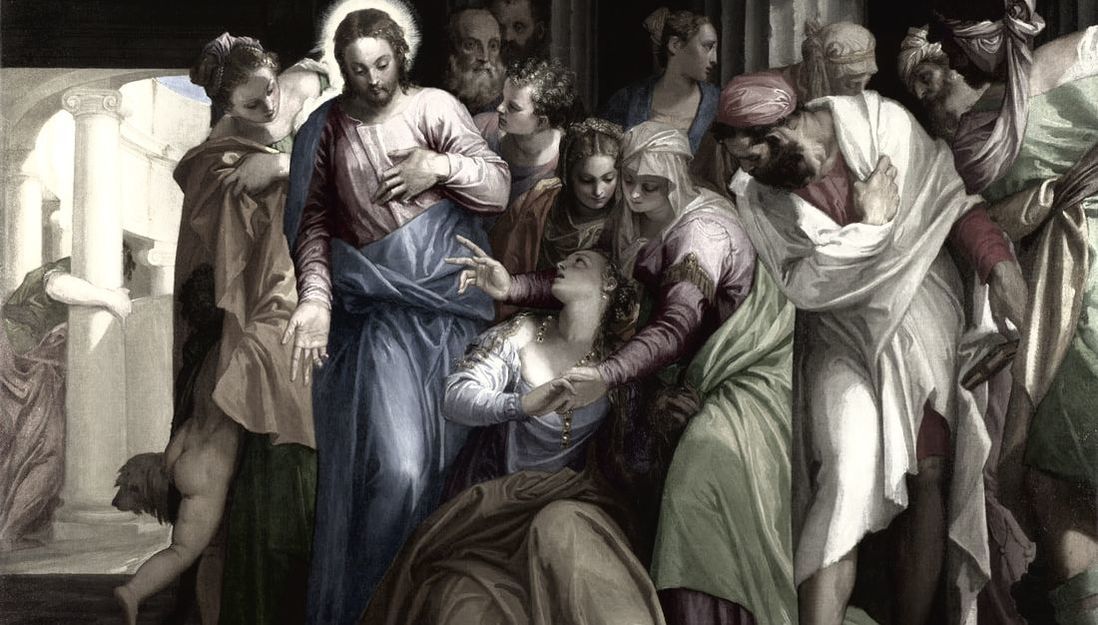Memorial of St. Agatha, Virgin & Martyr
So, what the point? The first truth is that these temporal healings, these tangible blessings and gifts, and, even more broadly, all of the talents, gifts, and faculties we have at our disposal, are good only inasmuch as they lead us to God; gifts are “fleeting and meaningless, while [they are] possessed, unless we can glimpse something of heaven’s eternity” in them.[1] This is Saint Ignatius’s Principle and Foundation: “The things . . . of the earth are created for man and to help him in pursuing the end for which he is created. Hence it follows that man is to use them as much as they help him to his end, and to rid himself of them if they hinder him.”[2]
We can think of Saint Alphonsus Ligouri’s example of a blind man who recovered his sight after praying to a saint. As he was leaving the saint’s chapel, he started to think that maybe having his vision would be worse for his spirituality, and so he returned to the chapel and prayed that, if it was better for his soul, he would prefer to remain blind. Sure enough, he went blind again.[3] Temporal things are only good if they lead us to God.
The second truth is that we shouldn’t be afraid to ask God for great things: Saint Theresa of Jesus used to say, “You pay God a compliment by asking great things of Him.” “You pay God a compliment by asking great things of Him.” Sometimes we limit God by only asking Him for small things, thinking that bigger graces, like the grace to become a saint, or for the conversion of our families, or whatever, might be too much. We become like the citizens of Gennesaret: all they wanted was to be healed physically, and that was enough for them; they are completely unaware of how generous Christ is, and of how much He wanted to give them. Today’s Gospel starts with the line: “After making the crossing to the other side of the sea, Jesus and his disciples came to land at Gennesaret.” That’s sort of an understatement: a few verses before, the disciples had gone off in the boat, and the wind went against them. During the night, Jesus appeared walking on the water, and the wind died down. Jesus did all of that simply to be with the people in Gennesaret.
Of course, we can ask for these graces through the intercession of Our Lady. During one appearance of Our Lady to Saint Catherine Labouré, Mary held out a golden ball that she seems to be offering to God. “Suddenly, her hands were resplendent with rings set with precious stones, [some of which] glittered and flashed in a brilliant cascade of light. So bright was the flood of glory cast upon the globe below that Catherine could no longer see Our Lady’s feet. Mary lowered her eyes and looked [at Catherine, who] heard a voice, even though Mary’s lips didn’t move. ‘The ball which you see represents the whole world, especially France, and each person in particular. These rays of light [that come from the gems] symbolize the graces I shed upon those who ask for them. The gems from which rays do not fall are the graces for which souls forget to ask.”[4] “The gems from which rays do not fall are the graces for which souls forget to ask.” A heart that trusts little, or that forgets God’s generosity, asks for little, and so receives little. The heart that trusts a great deal, asks for much, and receives much. Let us ask, through the intercession of Mary, Mother of Our Redeemer, and Saint Agatha, for the grace of a profound faith in Christ, a faith that makes us trust in His goodness and ask great graces from Him.
[2] The first point in the Spiritual Exercises.
[3] Recounted in Uniformity with God’s Will
[4] Joseph I. Dirvin, Saint Catherine Labouré of the Miraculous Medal





